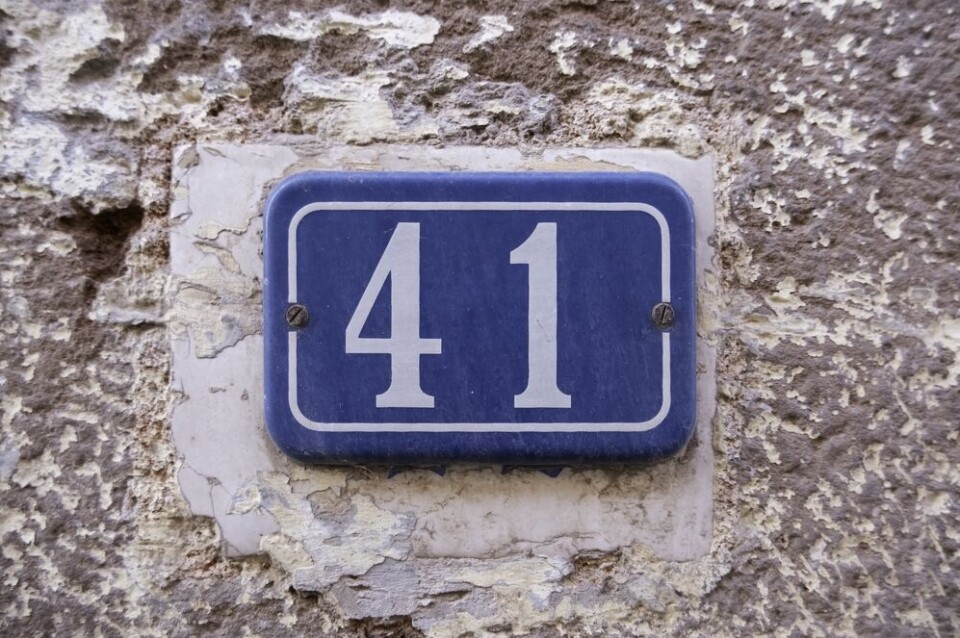-
New storm to hit waterlogged western France
Storm Pedro will bring gales of up to 140 km/h. Red flood alerts remain as death toll from recent weather conditions rises to three
-
Sex on work trip classified as workplace accident under French labour law
Classification requires employers inform the inspection du travail of the event within the 12 hours of an incident
-
Scam calls in France more than double in a year
Complaints about unsolicited calls are second only to those about fibre optic internet
Why the new road names in France and who is affected?
All properties must now have standardised address by law

Thousands of streets in France have been given - or are in the process of receiving - new identities as updated rules on addresses in France come into force.
The changes are being made to improve issues for public services such as La Poste, the police and SAMU (ambulances), which can have difficulty finding exact addresses in rural areas and to work with tools such as GPS.
Previously some smaller communes did not need street names or numbers on addresses, using hamlet names and lieux-dits (colloquial/local but unofficial names for areas and properties) instead of a standardised address.
However with the introduction of the ‘loi 3DS’ all addresses in France need both a name and a street number, even if there is only one property on the street.
Communes with more than 2,000 residents had until January 1, 2024 to make the changes. Those with fewer than 2,000 residents have until June 1 this year.
Improve services in rural areas
The addition of street names and numbers for all addresses is aimed at making finding them through tools such as GPS much easier.
This in turn will help emergency services as well as postal workers and other delivery drivers find rural addresses when needed.
It is also aimed at helping rural mayors. Mairies are required to assist emergency service and La Poste workers who call up asking for addresses.
Nicolas Dosen, mayor of Saint-Hilaire-sur-Helpe (Nord), told local media outlet La Voix du Nord that people call asking “where to find certain farms, or certain homes, and we have to help, sometimes with the use of maps.”
“[The addresses] are not all visible on GPS,” he added.
Mairies are also liable if emergency services are unable to find an address within their commune, said Patrice Leduc, an ‘address expert’ for La Poste.
Read more: How long do I need to keep old French documents?
Mixed opinion on changes
The first step is for La Poste to work in conjunction with local authorities “to check the accuracy of the positioning of certain points,” on maps and GPS, said Mr Leduc.
Once this is finished, the information is then handed across to mairies to address any anomalies and make any required changes as well as implementing new addresses.
In some areas, such as Pléguien in Brittany, residents were able to take part in the process of choosing new street names.
Elsewhere, mairies made the changes themselves, but in all cases they are responsible for updating road signs, as well as sending new number plaques to those residents who need them.
Despite mayors generally being in favour of the changes the financial cost of making the changes “is not negligible,” said Mr Dosen.
In addition, he is wary of the changes “compromising the soul of small villages.”
Certain rural residents agree.
The lieux-dits “are part of our heritage, part of our identity. Le Gincherau has a meaning. There is only one in France, and that is us,” said Claudine Bonno, a resident in the Passavant-sur-Layon commune in the Maine-et-Loire, to Radio France.
“We cannot forget our history for the sake of administrative simplification… We call people by their lieu-dit,” she added, saying that some say they ‘are going to chez Gincherau’ rather than using her family’s name.
Her new address is ‘1599, route d'Aquitaine’, because the home is 1,599 metres from the beginning of the road.
What do those affected by road name changes need to do?
Some people are only experiencing slight changes, such as their address number increasing as more stretches of road fall under the same name.
However others have been given an entirely new address, with a new street name alongside a number for the first time.
Any resident who receives a new address will receive a certificat d’adressage (address certificate) from their mairie.
This can be used to change the address on the Service Publicsite, which will update the address with national energy suppliers, as well as major government services, including most healthcare (caf, Cpam), and impôts (tax).
For private companies and other services such as La Poste, however, those affected will still need to manually update their address. Make sure to update your address on delivery websites, and for any subscriptions you have.
Non-nationals do not need to update their carte de séjour because of these changes.
Related articles
Residency card, tax, visa: Who to inform and how if you move in France
























